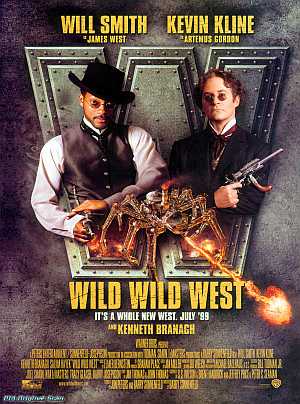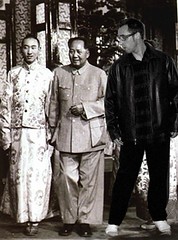(Best viewed in Internet Explorer)
Wild Wild West
Some believe that the wild west is a thing of history or folklore. This is not entirely the case. The wild west is an idea as strong as the oaks nestled into forgotten canyons along the deer tracks by the mountain run-offs. It lives on eternally in the hearts of men who have no master. It is in the eyes of every drink aimed at overtaking a drunk.
The old Indian killers kept scalps for rewards, and ears as trophies. They raped and they pillaged. They killed tens of thousands of buffalo. They turned everything into a steamy wasteland of possibilities that should have never been explored.
The frontier is still here. It is in the earth underneath my house. It is the dust settled on my television and bookshelves. It is in the air I breathe.
A great withering sigh escapes from the frontier's remains. It is a nameless sigh, with the listless meaning of sighing for the sake of sighing.
I have not yet seen riverboat gambling nor dredging for gold, only the old swampy quagmire left behind. Only the old gold teeth held in museums as a reminder that all bets must be paid in full.
The wild west lives on, lurching under the pavement. The frontier extends yet further beyond the eye of any man or satellite imaging system. You cannot find it in the back channels of the extended cable package, nor in the independent film aisle in the movie store. It lives on as the itch behind your eye that would leave you blind were you to scratch it.
I felt out of a tree once as a child, cutting a hole in my bare belly from a branch. The scar is faint now under a growth of hair indicating the changing of time. It is there though, plain as day, like a fraction of a memory.
Life is like that.
The wild west is a fiction, and it always has been. It is an over-active imagination for people who have had terrible childhoods. It still exists because we need it to. It holds branches at bay and turns the most pathetic of dives into exotic saloons and whorehouses. It turns desert into cinema.
When Kool Moe Dee released his hit song "Wild Wild West" in 1988 about growing up on the wild side of downtown 129th Street, he knew this truth. Growing up in a movie is better than growing up in darkness. And years down the road when Will Smith came back to him for a remix with Dru Hill and Stevie Wonder for his new movie of the same name, there was no denying that truth.
"Wild Wild West" turned out to be an awful movie, because it was too obviously what it was advertised. That is, empty spectacle.

When performing the song at the 1999 MTV Movies Award show live on television to promote his movie and album, Will Smith gallantly took the stage in a purple suit on horseback to thunderous applause to the theme of "The Good, the Bad, and the Ugly." He burst through a simulated saloon door to the main stage. He started his rap with a cadre of dancers behind him in flashy clothing. He called Kool Moe Dee and Dru Hill with Sisqo out to the stage. Sisqo emerged from a platform with pyrotechnics belting the hook of the chorus. He jumped off the platform and they all danced in unison together demonstrating skill, dedication, and practice. Halfway through the song DJ Jazzy Jeff cut up the break to the repeated cry of "breakdown!" And in the last moments of the song, Stevie Wonder appeared suddenly on the stage playing a saloon-style solo to end the song.
What you won't know by looking back at this history through the annals of the internet video collection, is that Stevie Wonder was left stranded on stage after the performance. Looking lost and confused and hopelessly blind, he eventually was helped off the stage so the awards show could continue.
The was an unforgettable moment for me, that by far eclipsed the fanfare of the spectacle that took place on the stage moments before. There was a pierce through the veil.
This was the one true moment.
The old Indian killers kept scalps for rewards, and ears as trophies. They raped and they pillaged. They killed tens of thousands of buffalo. They turned everything into a steamy wasteland of possibilities that should have never been explored.
The frontier is still here. It is in the earth underneath my house. It is the dust settled on my television and bookshelves. It is in the air I breathe.
A great withering sigh escapes from the frontier's remains. It is a nameless sigh, with the listless meaning of sighing for the sake of sighing.
I have not yet seen riverboat gambling nor dredging for gold, only the old swampy quagmire left behind. Only the old gold teeth held in museums as a reminder that all bets must be paid in full.
The wild west lives on, lurching under the pavement. The frontier extends yet further beyond the eye of any man or satellite imaging system. You cannot find it in the back channels of the extended cable package, nor in the independent film aisle in the movie store. It lives on as the itch behind your eye that would leave you blind were you to scratch it.
I felt out of a tree once as a child, cutting a hole in my bare belly from a branch. The scar is faint now under a growth of hair indicating the changing of time. It is there though, plain as day, like a fraction of a memory.
Life is like that.
The wild west is a fiction, and it always has been. It is an over-active imagination for people who have had terrible childhoods. It still exists because we need it to. It holds branches at bay and turns the most pathetic of dives into exotic saloons and whorehouses. It turns desert into cinema.
When Kool Moe Dee released his hit song "Wild Wild West" in 1988 about growing up on the wild side of downtown 129th Street, he knew this truth. Growing up in a movie is better than growing up in darkness. And years down the road when Will Smith came back to him for a remix with Dru Hill and Stevie Wonder for his new movie of the same name, there was no denying that truth.
"Wild Wild West" turned out to be an awful movie, because it was too obviously what it was advertised. That is, empty spectacle.

When performing the song at the 1999 MTV Movies Award show live on television to promote his movie and album, Will Smith gallantly took the stage in a purple suit on horseback to thunderous applause to the theme of "The Good, the Bad, and the Ugly." He burst through a simulated saloon door to the main stage. He started his rap with a cadre of dancers behind him in flashy clothing. He called Kool Moe Dee and Dru Hill with Sisqo out to the stage. Sisqo emerged from a platform with pyrotechnics belting the hook of the chorus. He jumped off the platform and they all danced in unison together demonstrating skill, dedication, and practice. Halfway through the song DJ Jazzy Jeff cut up the break to the repeated cry of "breakdown!" And in the last moments of the song, Stevie Wonder appeared suddenly on the stage playing a saloon-style solo to end the song.
What you won't know by looking back at this history through the annals of the internet video collection, is that Stevie Wonder was left stranded on stage after the performance. Looking lost and confused and hopelessly blind, he eventually was helped off the stage so the awards show could continue.
The was an unforgettable moment for me, that by far eclipsed the fanfare of the spectacle that took place on the stage moments before. There was a pierce through the veil.
This was the one true moment.
























0 Comments:
Post a Comment
<< Home